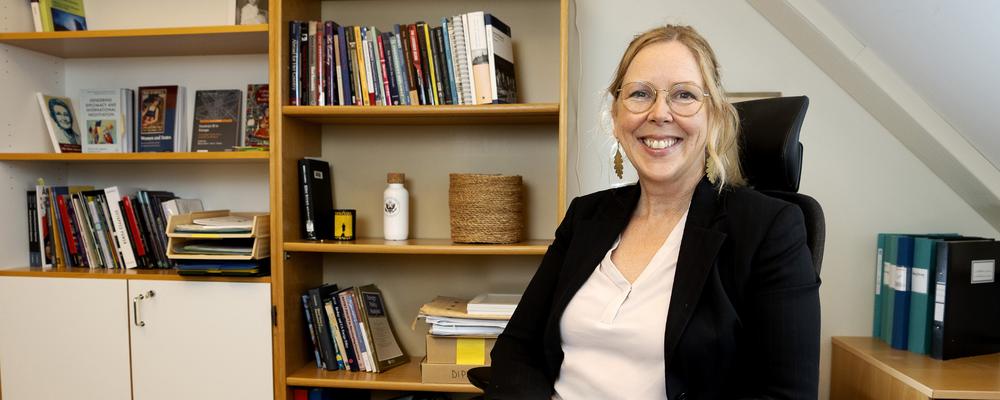
Meet our staff: Ann Towns, professor
Ann Towns is a professor at the Department of Political Science. In addition to teaching, she conducts research on issues related to social hierarchies, power, and resistance in international politics. She leads research programs such as GenDip, which focuses on gender norms, gendered practices, and hierarchies within diplomacy.
Why did you apply for a position at the University of Gothenburg?
I was actually recruited by the University of Gothenburg. The University contacted me and asked if they could nominate me for the Wallenberg Academy Fellows, which is a private initiative supporting young researchers in Sweden. Thanks to that opportunity, I've been able to lead this larger project on gender in diplomacy and build up my research program, GenDip. Now, I'm enjoying my work here and want to stay.
What might a typical workday look like?
There are several types of workdays for me. Some days are focused on fieldwork, which involves traveling, conducting interviews, and gathering materials from various archives. Other days, I attend conferences or workshops where I can present my research. However, when I'm at the University, my main focus is on teaching, which includes both planning and meeting students in the classroom.
Sometimes, it's very social, like when I sit in steering groups for international networks or when I'm interviewed by the media. Other times, it's more solitary, such as when I'm reading manuscripts for journals or when I'm in the writing process for my own research.

What's the best thing about working at the University of Gothenburg?
I like that it's a large University located in the city of Gothenburg. The constant flow of ideas and people means that there's always something happening. We're also good at collaborating and supporting each other, even though we work in different departments and conduct various types of research. The culture is a bit like "if others are doing well, then I'm doing well too" - we simply help each other out!
I also appreciate the support available at the University, such as the Grant and Innovation Office. They have provided support with applications and interviews, including for the Wallenberg Academy Fellows program.
We also have incredibly talented students, which is a certain kind of privilege. Working with students who have so many skills when they arrive here is rewarding. They ask questions and are curious, which means both I and the students learn things in the classroom!